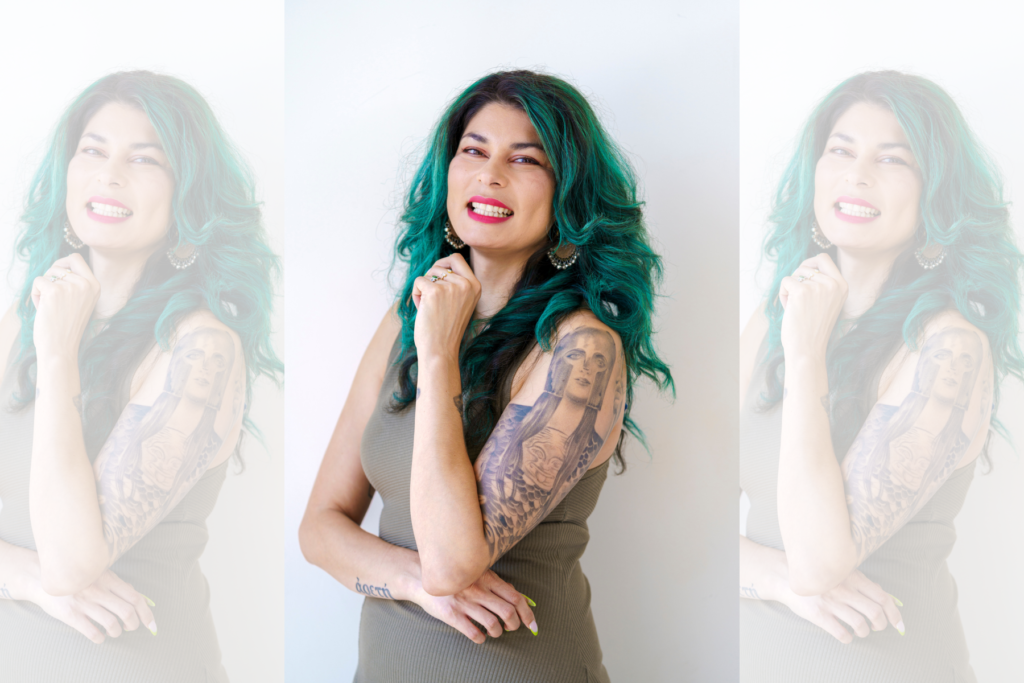
The source of a lot of our pain is our heritage—not our heritage on its own, but the role it plays in our lives as displaced children of the diaspora. Many of us are not immigrants; we’re refugees. Many of us are not able to safely visit or live in our home countries. Instead, we live in host countries, alongside survivors’ grief, guilt, and shame. We receive confusing messages about who we are allowed to be. Not just from our families, but from the rest of the world as well.
It’s no wonder then, that so many of us live with anxiety, depression, trauma, and more. Intergenerational trauma manifests in these obvious “diagnosable” ways but also in more subtle ways. We have trouble trusting ourselves to make decisions; we go along with those who bully us; we joke about insomnia and workaholism, but these things take a toll on us. We struggle in relationships because, at one point or another, we didn’t know who we were supposed to be. We struggle in our careers because of the scarcity mindset that tells us nothing is good enough, while also pitting us against each other in competition for tokenized spots. We struggle with body image because we are too ethnic for our white American peers and too American for our families. We are tossed between modesty culture and “free the nipple.” We are either fetishized or invisible.
View this post on Instagram
For many of us, rather than grapple with the etiology of these issues, we decided to cope by pushing our identity down. Assimilation was invisibility, and invisibility was survival. Some of our parents wanted us to embrace our culture at home but completely blend in outside. Or vice versa: some of our parents were so proud that we learned English when they didn’t, so we were only allowed to speak English at home. The trauma that displaced many of our parents and grandparents has been taken out on us in the form of criticism, high expectations, obligation, and more. The rug was pulled out from under us and then we are told we should be grateful for our freedom.
So yeah. “Home” is a complicated issue.
It’s understandable why we wouldn’t want to turn and face our heritage. Whether we love it or we hate it, it’s often a source of great pain.
[Read Related: Therapy is Showing me how to Reclaim my Life]
We are told by those outside of our culture that we are backward, pitiful, and mysterious. That we don’t have value other than for the resources of our land. Elements of our culture are appropriated and divorced of their meaning and when we embrace those same elements, we are told we need white feminism to save us. We internalize this displacement, this fetishization. We are called exotic as if it’s a compliment. We learn about our own history from people with European names. We are subjects of classes taught by white men as if we are a museum exhibit. We internalize this perspective when we start to see our own heritage as something outside of ourselves.
We become the outsiders ourselves. Try to wrap your mind around that. In order to fit in, in order to stop being the museum exhibit, in order to be seen for our humanity, we distance ourselves from whatever is in that textbook with our country’s name on the cover. We begin to believe that in order to have humanity, we need to assimilate into the dominant culture.
[Read Related: Why I Finally Started Therapy. And Why I Won’t Stop.]
Alternately, when we do finally get to experience our culture, we might idealize it, especially if we haven’t been able to visit or live among people who look and sound like us. We ignore or forget the nuance and complexity of our heritage. When others point out the ways we have embraced colonization by being an oppressive, colorist, classist, or ethnically prejudiced, we defend it because we feel it’s our only choice. Within our own families, we often experience abuse, disenfranchisement, and gendered expectations. Some of this is inherited from the trauma of displacement but some of it is our own doing.
For all these reasons, it can be painful to embrace our own culture. My invitation to children of diaspora is to face the discomfort. Learn about your heritage. Pick and choose the parts that still resonate with you. You’re allowed to do that. Define yourself so that others won’t define you. And even if you don’t care about what others think of you, then at least by unpacking your identity for yourself, you will be able to integrate the pain of displacement and move forward with a lighter burden.
Stay tuned for my next piece about how you can leverage your ancestry to help you heal.
View this post on Instagram
Photo Courtesy of Kelly Robyn Photography.




